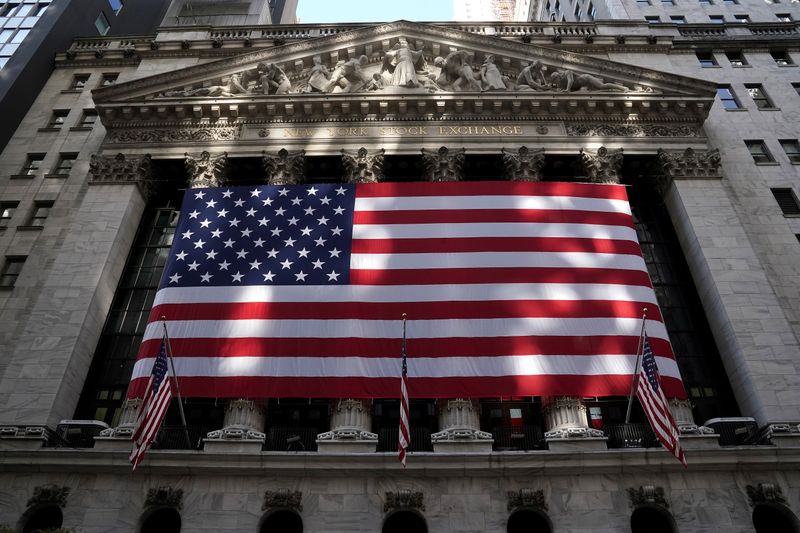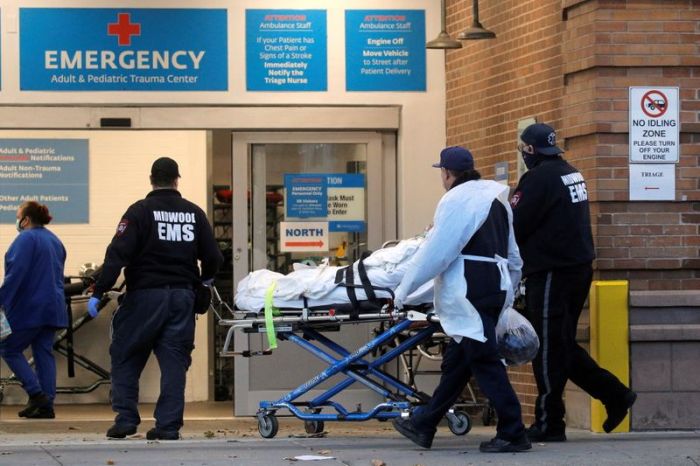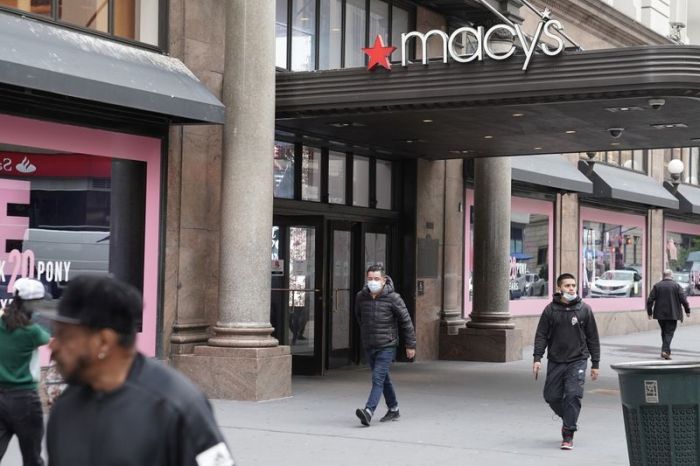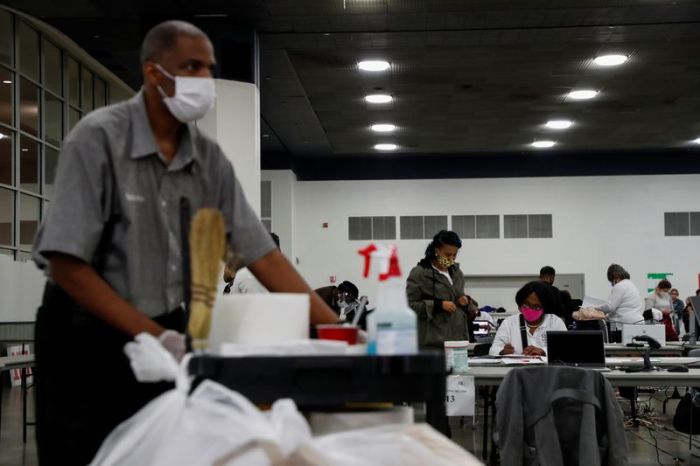(Reuters) – U.S. stock market futures dropped late on Thursday after Treasury Secretary Steven Mnuchin pulled the plug on some of the Federal Reserve’ pandemic emergency lending programs.
S&P 500 emini futures <EScv1> dropped 0.75% after Mnuchin asked the central bank to return money earmarked under the March pandemic relief act for emergency lending to businesses, nonprofits and local governments, marking an end on Dec. 31 to most of the crisis-response programs the Federal Reserve has deemed vital to keeping the economy stable.
The yield on the U.S. 10-year Treasury <US10YT=RR> also slipped, suggesting a flight to safety among investors.
“If you don’t have these programs, in general it’s a risk-off situation for the markets. They have not been much used but they were there as a backstop and even the thought of them was seen as a safety net,” said Andy Richman, director of fixed income strategies at Sterling Capital Management in Jupiter, Florida.
Earlier, U.S. stocks ended in positive territory after fresh stimulus hopes buoyed investor sentiment in a session fraught with worries over mounting shutdowns and layoffs linked to spiraling COVID-19 infection rates.
All three major stock indexes got a healthy boost after Senate Minority Leader Chuck Schumer said Senate Majority Leader Mitch McConnell had agreed to revive talks to craft a new fiscal relief package.
“We’ve seen this playbook before, where investors flock to the safety of tech and growth when the economy shows signs of slowing down,” said Ryan Detrick, senior market strategist at LPL Financial in Charlotte, North Carolina. “But everything changes now that there’s hope of the next stimulus plan.”
“Clearly markets are bouncing on that optimism.”
Even so, spiraling COVID-19 infection rates turned investors toward market-leading growth stocks that have shown resiliency to the pandemic.
The Philadelphia SE Semiconductor index <.SOX>, which thrived throughout the health crisis, handily outperformed the broader market, rising 1.6%.
“In a COVID world, semis are a safer play as they’re not impacted as much due to shutdowns,” Detrick added.
The number of U.S. workers filing new claims for unemployment benefits unexpectedly rose last week, the data painting a grim picture of increasingly elevated layoffs as spiking coronavirus cases and subsequent shutdowns continue to hobble the labor market.
Record infection numbers have caused COVID hospitalizations to soar by 50% and have prompted schools and businesses to close once again, thwarting the recovery of the world’s largest economy from the deepest recession since the Great Depression.
The Dow Jones Industrial Average <.DJI> rose 44.81 points, or 0.15%, to 29,483.23, the S&P 500 <.SPX> gained 14.08 points, or 0.39%, to 3,581.87 and the Nasdaq Composite <.IXIC> added 103.11 points, or 0.87%, to 11,904.71.
Of the 11 major sectors in the S&P 500, energy <.SPNY> and tech shares <.SPLRCT> gained the most, while utilities <.SPLRCU> and healthcare <.SPXHC> were the only percentage losers.
Third-quarter reporting season is nearing the finish line, with 472 of the companies in the S&P 500 having reported. Of those, 84.5% have beaten consensus, according to Refinitiv data.
Macy’s Inc <M.N> reported a 20% plunge in quarterly same-store sales and the department store forecast a tough holiday season.
Chipmaker Nvidia Corp <NVDA.O> forecast a slight dip in data center chip sales but the company beat quarterly revenue expectations.
L Brands Inc <LB.N> surged 17.7% after posting better-than-expected quarterly results and a 56% jump in same-store sales.
Tesla Inc <TSLA.O> shares rose for the third straight session to touch a record high, riding the wave of its pending inclusion in the S&P 500, announced on Monday.
Advancing issues outnumbered declining ones on the NYSE by a 1.77-to-1 ratio; on Nasdaq, a 1.80-to-1 ratio favored advancers.
The S&P 500 posted seven new 52-week highs and no new lows; the Nasdaq Composite recorded 87 new highs and 10 new lows.
Volume on U.S. exchanges was 10.94 billion shares, compared with the 10.55 billion average over the last 20 trading days.
(Reporting by Stephen Culp, additional reporting by Noel Randewich; Editing by Tom Brown)

























